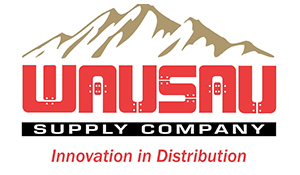In the heart of the Great Depression, the American government wanted to bolster economic development. One way they did so was with the 1934 Foreign Trade Zone (FTZ) program, which is still being utilized today as a tool for American businesses to compete in a global market.
There are currently around 230 FTZs and 400 subzones within the United States. The Port of Montana, located within the Montana Connections Business Development Park, is Foreign Trade Zone #274.
What is a Foreign Trade Zone?
In layman’s terms, an FTZ is a secure site located within the United States physically, but outside of U.S. customs territory. Each zone falls under the supervision of U.S. Customs and Border Protection.
When an item is imported into the U.S., if it’s being stored anywhere outside of an FTZ, the company immediately has to assess and subsequently pay its duties on that product.
A product imported directly into a FTZ will not have duties assessed until after the product leaves the Zone. (An FTZ does allow exemptions of export duties if your product never leaves the zone and is immediately re-exported).
The Benefits of a Foreign Trade Zone:
There is a multitude of benefits when you import your products directly into an FTZ, benefits that can largely depend on the type of business you have.
Maximizing Cash Flow
Duties and taxes are not paid until merchandise leaves the FTZ . This duty deferral, or sometimes even avoidance, can result in major cash savings. Additionally, while in the zone, certain tangible personal property is generally exempt from state and local ad valorem taxes.
As the Port of Montana allows you to store your goods for an indefinite amount of time—you can wait for the best price within the U.S. market, which also maximizes your cash flow. During this time, your goods are guaranteed to be safe and secure, as CBP security requirements provide protection against theft.
Bypassing Quota Restrictions
Goods that are under quota restrictions and thus not granted market entry in the U.S. may be stored in an FTZ until the quotas are lifted and the product can be once again brought into U.S. markets.
In certain cases, a quota-restricted product can be altered and manufactured within an FTZ to create a new version of the product that is compliant with quota restrictions and thus appropriate for release into the domestic market.
Streamlining Bureaucracy
U.S. Customs often examines goods being imported into the border, which can cause long delays. When importing straight into an FTZ, this process will be expedited and often skipped all together. In addition, FTZs minimize the amount of paperwork and frequency of submittals of paperwork to U.S. Customs. This increases efficiency and lowers costs.
Having Better Control
Your company can run from a single distribution center, delivering your goods across the world without facing huge import and export duties you’d be subjected to outside an FTZ. Because your inventory is kept in one facility, you can keep an eye on your goods and better control your distribution.
The FTZ program has helped thousands of businesses across the U.S. compete in a global market. As of 2015, the value of merchandise handled by FTZs exceeded $640 billion and only continues to increase.
Learn additional benefits of an FTZ for your company by contacting us today. We’re always available and excited to help.





